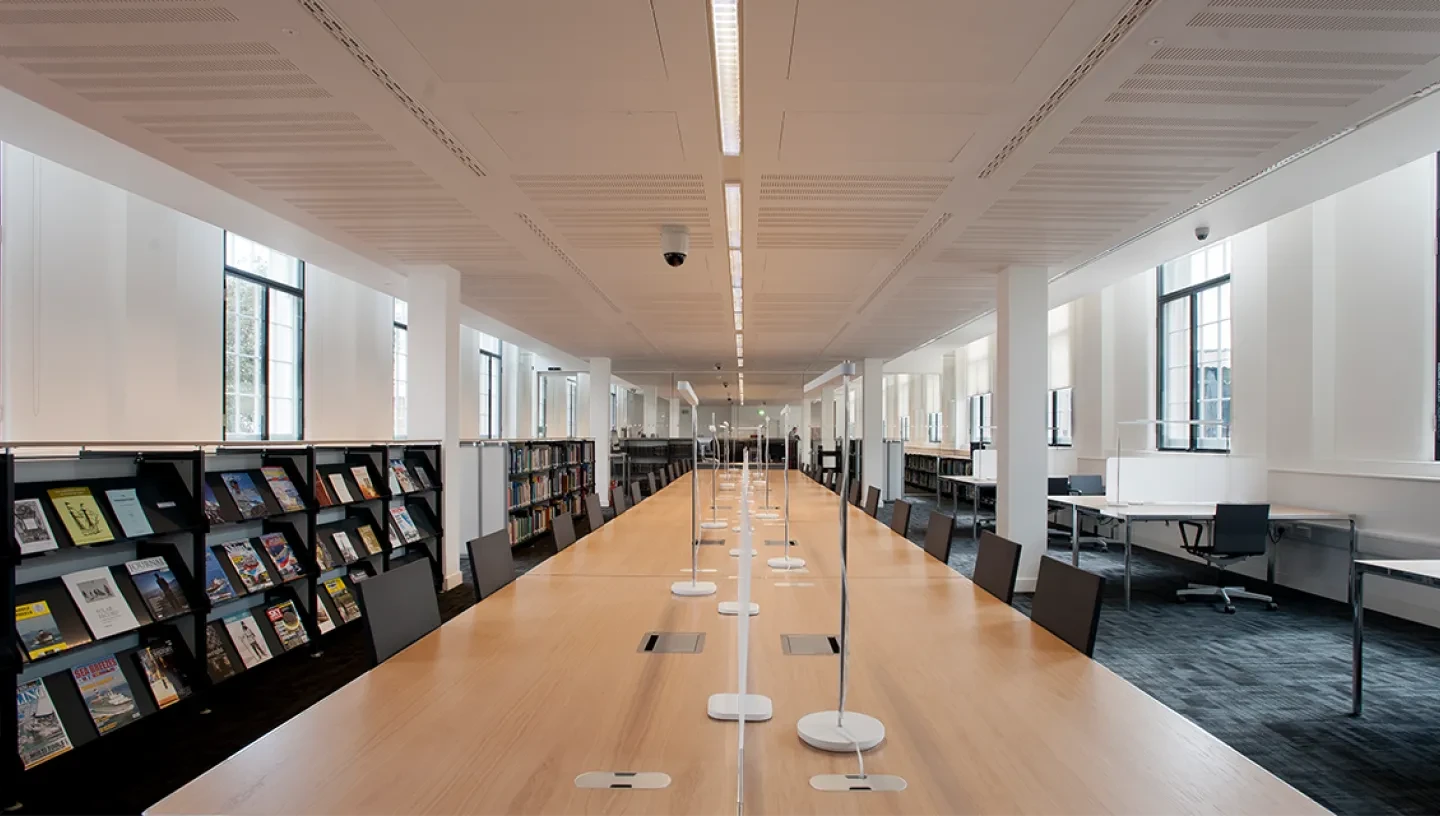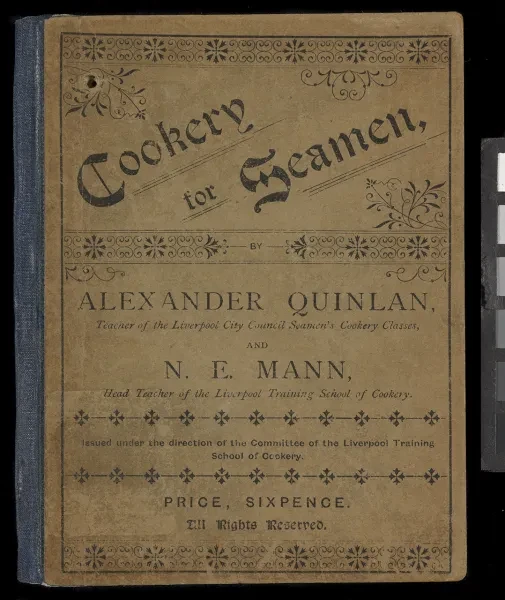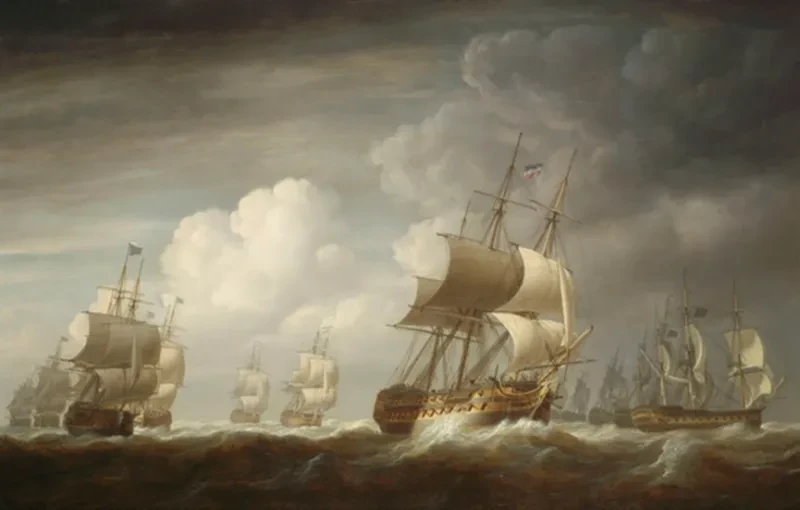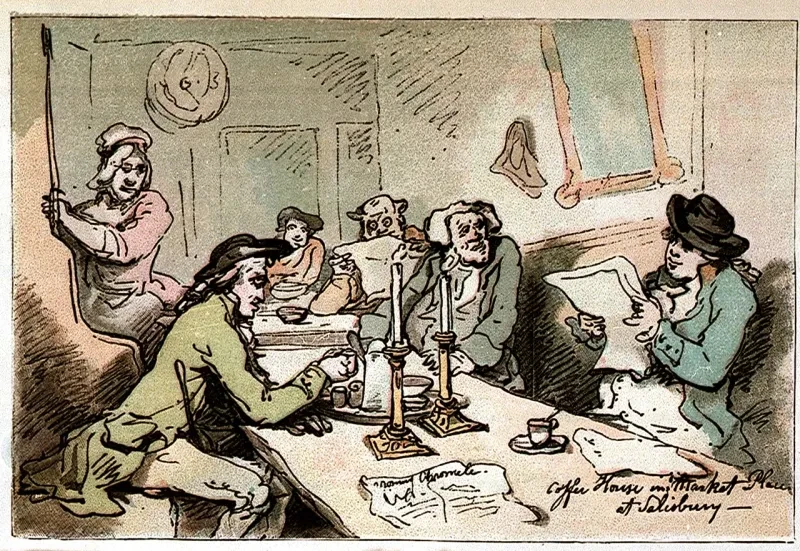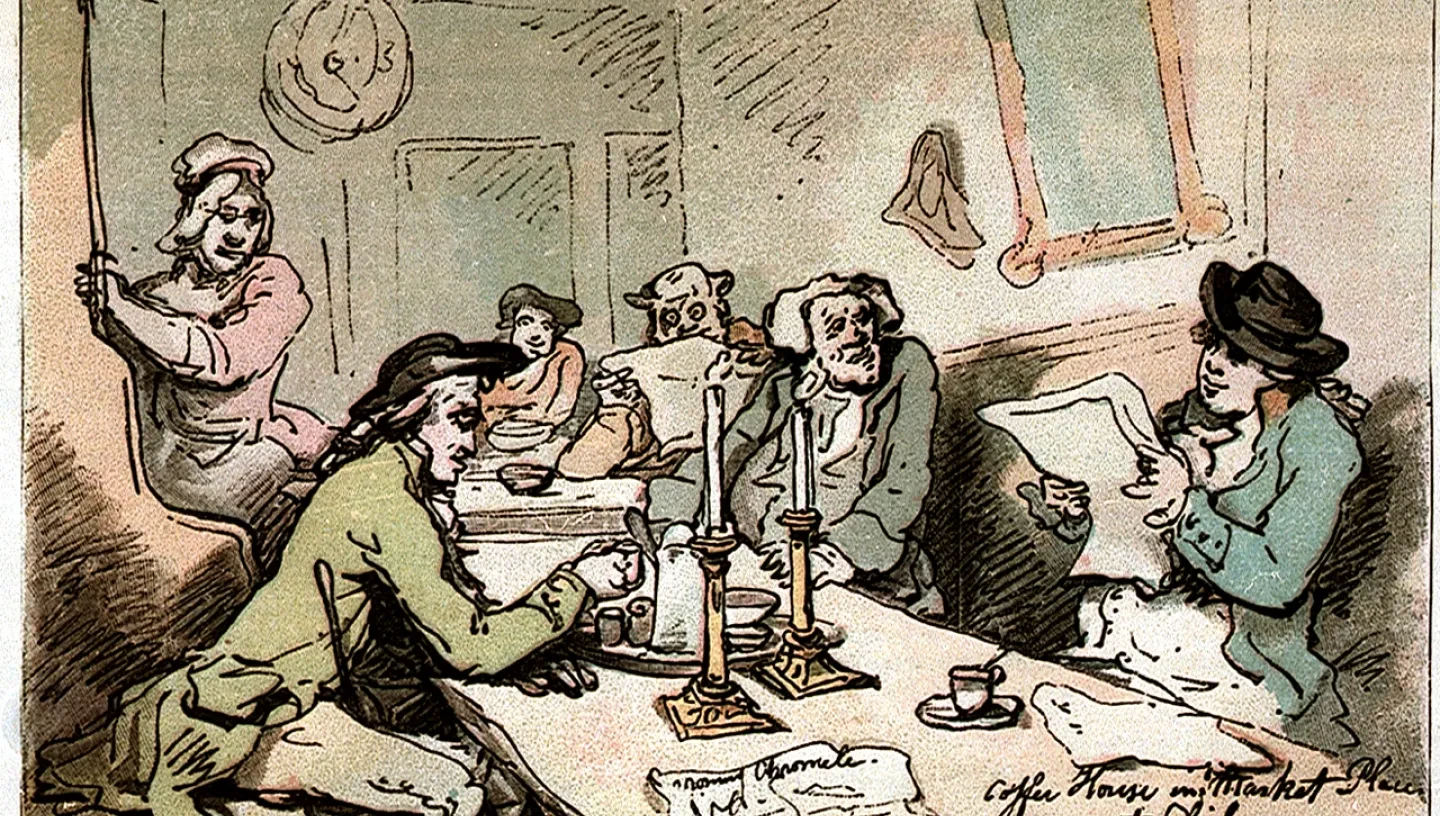
This blog looks at how a seemingly insignificant bean provided the stimulus to advancements in naval intelligence, technology, trade and science
Many of us these days can’t start the day without a cup of coffee. In fact, we have come to love our coffee so much it often feels like we can’t walk down the high street without walking past at least three different coffee shops.
Although coffee originated in the East, Britain soon adopted it. By the 18th century coffee houses were everywhere and frequented by almost every class in society. Scientific subjects, such as longitude, were discussed over a brew of coffee, and merchant businesses expanded with a coffee in hand. Coffee and coffee houses were so important to maritime history we would not be where we are today without it.
Coffee houses
There is no exact date when coffee began its life on our shores but, despite its bitter taste, its energy reviving effects meant it didn’t take long until it was being sold commercially. Samuel Pepys mentions in his diary that he used to frequent a few different coffee houses to discuss business, war with the Dutch, and the plague in Amsterdam which would eventually reach British shores. Despite the setback of the plague and the Great Fire of London in 1666, the popularity of coffee houses did not wane, and coffee-house culture soon expanded.
The mixture of discussions, sharing of ideas and the ability to rapidly spread news in coffee houses could easily be accredited to the Age of Enlightenment. The rich intelligence available and the one penny entrance fee gave coffee houses the nickname ‘Penny Universities’. In fact, the talk of politics in such places was alarming to Charles II who, on 12 June 1672, proclaimed restraining the spread of false news and matters of state and government in coffee houses and other places of meeting.
Secretary of State Sir Joseph Williamson embedded spies in London coffee houses in 1675, which led to Charles II ordering all coffee houses closed in London. This rather unpopular decision only lasted 11 days. Coffee houses became the hub of news and gave birth to business that we recognise today.
Lloyd’s of London
Lloyd’s of London, simply known as Lloyd’s, is an insurance and reinsurance market, a corporate body governed by the Lloyd’s Act 1871. It began in Lloyd’s Coffee House owned by Edward Lloyd. It was first referred to in the London Gazette in 1688. Lloyd’s Coffee House became recognised as the ideal place to gather reliable shipping news and to obtain marine insurance.
Lloyd’s List
Lloyd’s Coffee House would publish daily news to inform people about the departure and arrivals of ships and their cargo, where pirates were active, and reporting of the operations of other countries’ fleet. The first official edition of Lloyd’s List was published by Thomas Jemson in 1734 using the name of Lloyd's which had already built a reputation of reliable information. Lloyd’s List still runs today as one of the world’s oldest journals providing weekly shipping news.
The London Stock Exchange
A coffee house was founded by Jonathan Miles in Exchange Alley around 1680, aptly named Jonathan’s Coffee House. In 1698, a man by the name of John Castaing began posting the prices of stocks and commodities. Those who had been expelled from the Royal Exchange began flocking to Jonathan’s. In 1762, a club was formed by about 150 of these brokers to trade stocks. They used Jonathan’s until the club built its own building in 1773, eventually naming it the Stock Exchange.
Auction houses
In the 18th century, artwork, libraries and natural history collections began to be auctioned in taverns and coffee houses. Sotheby’s auction house began in such fashion. It was established in London in 1744 when Samuel Baker (1713-1778) supervised the clearance of several hundred rare and valuable books from the library of an acquaintance. The auction house Christie’s, founded by James Christie (1730-1803), began life in a very similar fashion.
Royal Society of London
Coffee houses attracted all sorts of people, including many scholars. Members of the Royal Society, established in 1660, met in coffee houses to discuss, debate, and exchange knowledge. Isaac Newton once dissected a dolphin on the table of the Grecian Coffee House.
Usurped by tea
The popularity of the coffee house began to decline by the end of the 1700s and many were gone by 1830. One of the reasons for this was the introduction of tea. When people could make their own tea at home with their families there was no need to go to coffee houses. This also meant fewer whispers of conspiracy where men could gather together to plot and scheme.
In 1717, Twining’s opened the first tea shop allowing ladies to mix shopping and socialising. Although coffee has since had a revival, becoming a major global commodity, there is no denying the extent to which our society owes its advancements of technology and knowledge to the coffee bean.
Main image: Coffee House in Salisbury Market Place, Thomas Rowlandson, 1891 (RMG ID: PAF4936)
